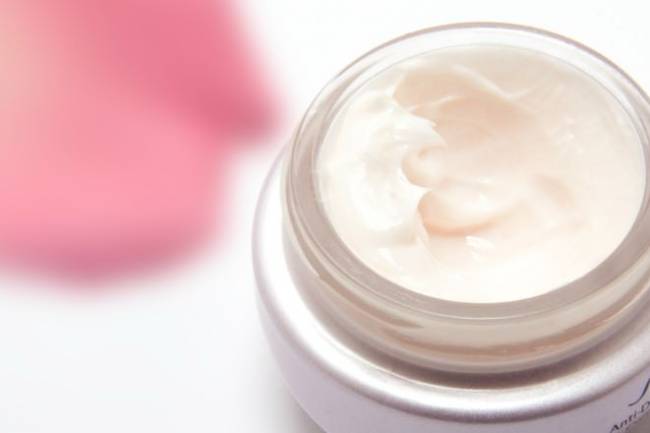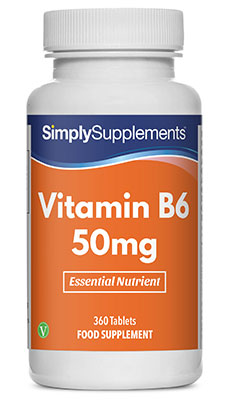Health Benefits of Vitamin B6

What is Vitamin B6?
Vitamin B6, also known as pyridoxine, is involved in the production of serotonin and norepinephrine, which help to transmit signals in the brain.
It benefits a range of physical and psychological conditions, including nerve function, protein metabolism, and the production of antibodies and healthy haemoglobin.
It also helps to regulate hormonal balance.
Vitamin B6 Benefits
Vitamin B6 has been used to treat hundreds of different health conditions, some with more effectiveness than others. These include:
- Heart Disease: Vitamin B6 maintains normal homocysteine levels in the blood and so helps to dilate blood vessels and prevent the build-up of fatty plaques along the inside of blood vessel walls. There is also evidence to suggest that B6 may have a beneficial effect on cholesterol levels.
- Kidney Stones: Evidence suggests that a high intake of B6 over a three-month period can help to prevent kidney stones from forming, particularly when taken in combination with magnesium. One study found that a daily intake of vitamin B6 10mg and magnesium 300mg reduced average kidney stones per year from 1.3 stones to 0.1 stones.
- PMS: There is some evidence that increasing vitamin B6 intake may help to reduce symptoms commonly associated with PMS, such as bloating, breast pain and premenstrual acne. It is thought that B6 helps to regulate hormone and prostaglandin balance, which are often to blame for these symptoms.
- Depression: Vitamin B6 plays a role in the production of serotonin and so influences mood. There is some evidence to support the use of B6 in the treatment of depression, especially when taken in combination with vitamin B12 and folic acid. Low levels of vitamin B6, along with other B vitamins, are often found in patients with depression.
- Energy: As a member of the B-vitamin family, B6 plays an essential role in the metabolism of fats and proteins which are required to convert food into energy. It does not act as an instant energiser but instead, helps to sustain normal energy levels and avoid dips and crashes in energy.
- Anaemia: Sideroblastic anaemia, a form of anaemia, occurs when the bone marrow produces ringed sideroblasts rather than healthy blood cells. This is caused by reduced haemoglobin synthesis, which results in the accumulation of iron within red blood cell precursors. Deficiencies in vitamin B6 or copper are commonly associated with Sideroblastic anaemia, and in such cases, a vitamin B6 supplement may help to correct the anaemia.
- Skin: Low levels of vitamin B6 are likely to increase the appearance of skin problems, and so vitamin B6 is commonly added to treatments for common skin conditions like eczema, dandruff, and acne. In fact, dull, dry, or cracked skin is often the first visible sign of a vitamin B deficiency.
Other potential benefits include:
- Carpal tunnel syndrome
- Asthma
- Morning sickness
- Allergies
- ADHD
Vitamin B6 Deficiency
In the UK it is common to have low vitamin B6 levels, however, deficiencies are rare. The following groups may have a higher risk of deficiency:
- Pregnant or breastfeeding women
- Adults over the age of 50
- High alcohol consumption
- Kidney disease
- Eat a nutrient-poor diet
- Overactive thyroid
Certain medications such as antibiotics, steroids and birth control pills can also increase the need for higher levels of vitamin B6, but always speak to your doctor first to check there aren’t any interactions.
Common symptoms of vitamin B6 deficiency include:
- Confusion
- Depression
- Irritability
- Mouth and tongue sores
- Loss of appetite
- Hair loss
- Cracked lips
- Coordination problems
Sources of Vitamin B6
The best sources of vitamin B6 are protein-rich foods such as meat, fish and eggs, while vegetables such as avocados and tomatoes also provide beneficial amounts. For adults who struggle to consume sufficient levels through diet alone, vitamin B6 supplements can also be beneficial.
How Much Do I Need?
If you eat a balanced diet you will likely get all the B6 you need from food. However, people who consume a nutrient-poor diet or are over the age of 50 may struggle without the help of supplements. Ideally, you should consume:
- Men 1.4mg per day
- Women 1.2mg per day
If you are taking supplements, you are advised to limit your intake to 100mg over the course of the day, split into two 50mg doses.
Side Effects and Interactions
Vitamin B6 is water-soluble and is likely safe when taken within the recommended dosages. Only a few mild side effects have been reported, which include nausea, sensitivity to sunlight, and loss of appetite.
Toxicity has been reported in very high doses above 200mg per day. Taking over 200mg for an extended period of time may trigger tingling and numbness in the hands and feet, or result in irreversible nerve damage.

 Nicole
Nicole 

























